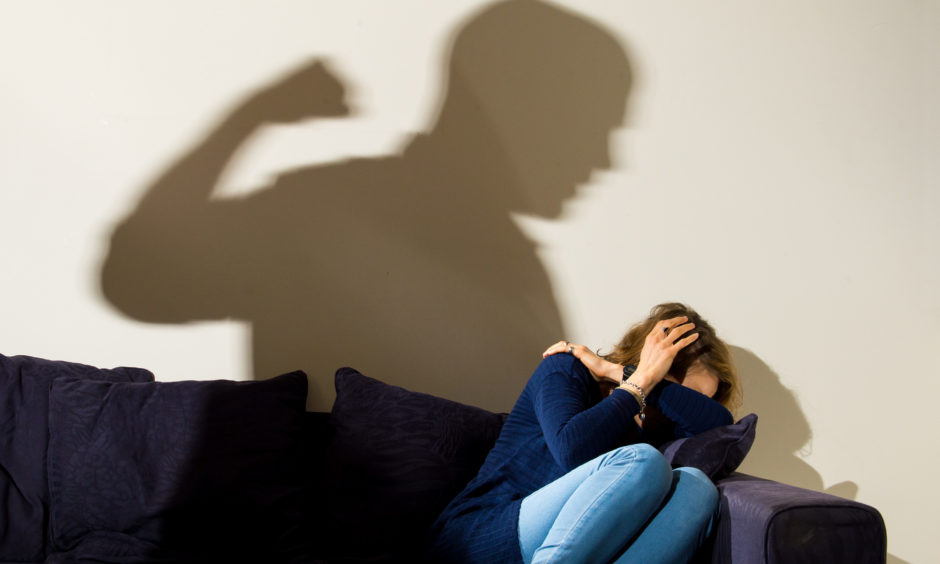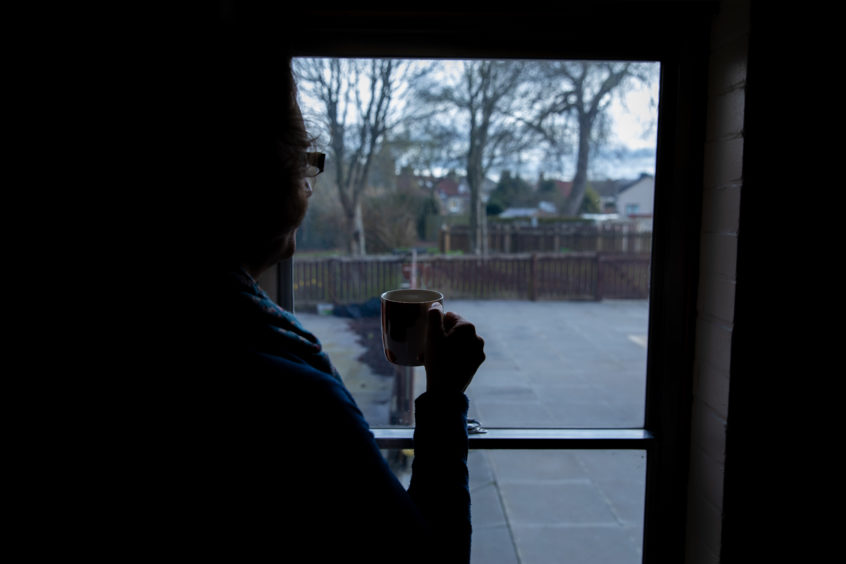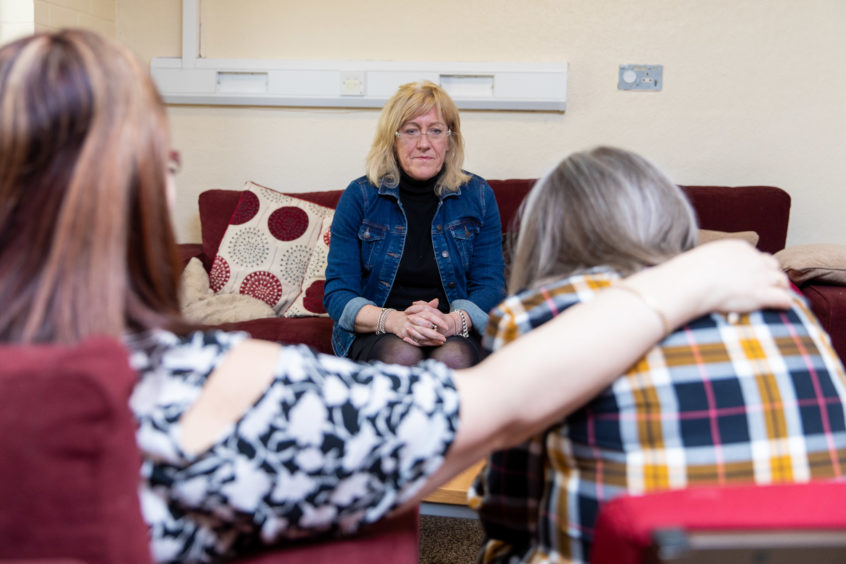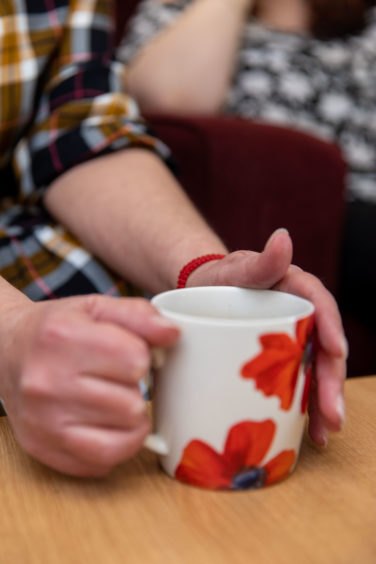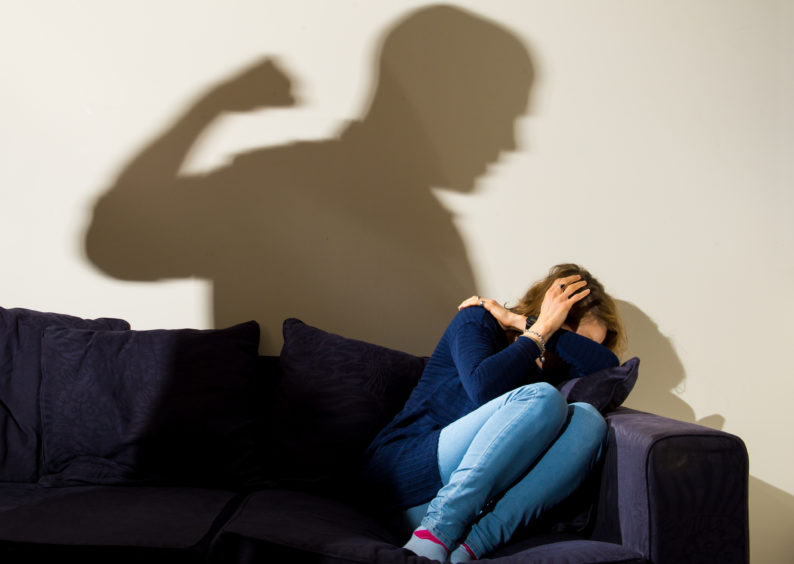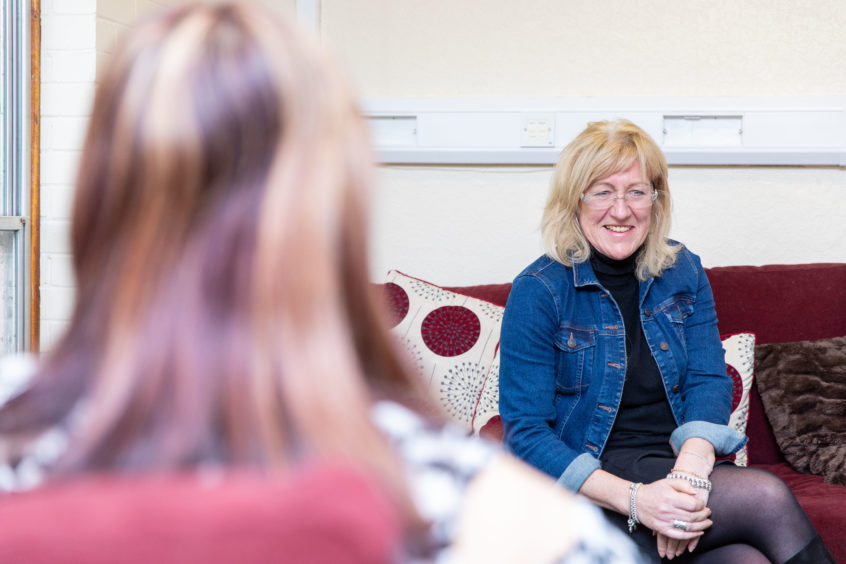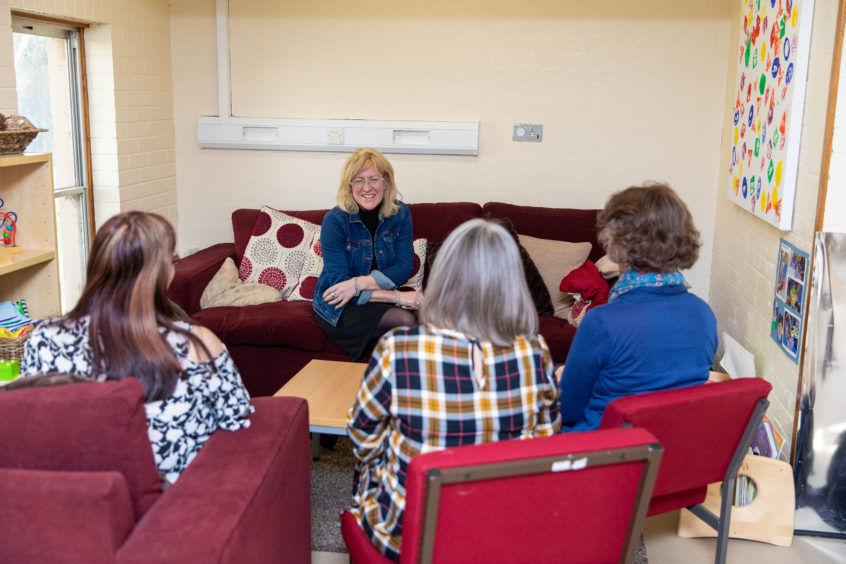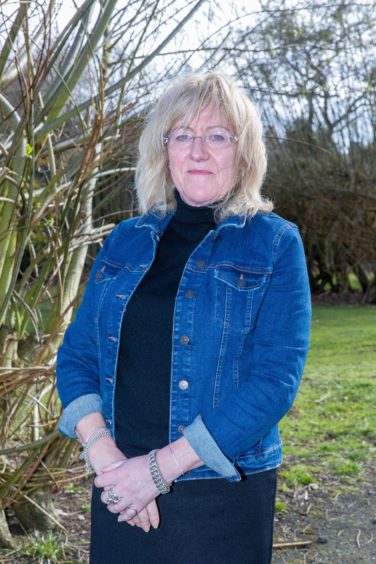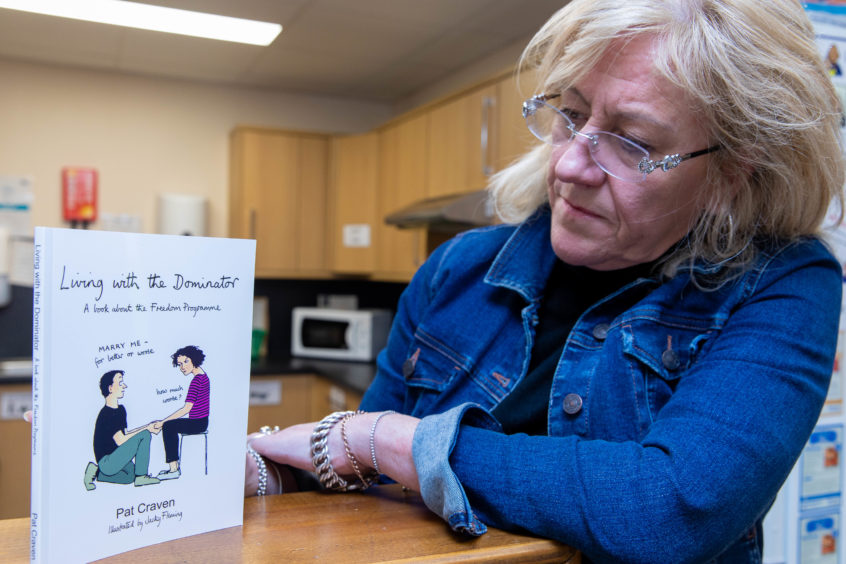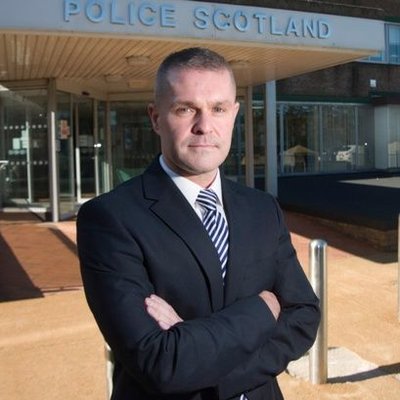With the launch of new legislation on April 1 that criminalises psychological domestic abuse in Scotland, Michael Alexander spoke to several domestic abuse survivors in Fife and heard why reported cases in Scotland are likely to be the tip of the iceberg.
To the outside world, Georgia from Fife and her husband had the “perfect life” raising their two “well turned out” children.
Having met as teenagers, Georgia and her husband were enjoying successful careers within the military.
However, behind closed doors, Georgia was living a “different life” where her confidence was being “chipped away in every area possible”, “rules and regulation” set by her husband were controlling her and she was being regularly beaten physically and emotionally to the point where she became an “empty shell” who no longer believed in her own worth.
“Right at the beginning the very first rule I got was ‘don’t swear’,” Georgia said.
“But before long two million other rules were drip fed until it got to the point where you stop questioning and if you did there would be consequences.”
Early on in her marriage, Georgia became “obsessed” with cleanliness in their RAF married quarters amid fears her husband would beat her if she didn’t clean properly.
However, over time the violence escalated.
“He became very violent when I was pregnant,” she recalled.
“He threw me down the stairs. If he came in and I was sleeping that was a ‘no no’ and I would get dragged about by the hair and beaten up,” she said, adding that when he went away on three-month detachments, she would be deliberately left “without a penny” and without the car keys.
The biggest rule he imposed on her, however, was “don’t ever leave me” – otherwise he would threaten to kill her or the children.
“One of his tricks was he would drive really fast up to another car and pull out at the last minute and tell me at the same time he knew where exactly to hit the car in front so that only the passenger side would be affected,” she said.
“He claimed he would come out of it without a mark on him and I would be killed instantly – or there would be so much damage there would be a nice, slow painful death.
“On another occasion we were out and I looked at somebody – of course this meant I was sleeping with that person!
“I got dragged outside, I got beaten up. Folk were passing and never did anything because we were on the camp.
“On another occasion we were walking home in the pitch black. I was wearing a black blouse and black jeans. He said to me ‘I’m going to put you in front of a car. The car will never see you. It’s so dark. They’ll not see you until you are over the bonnet and through the windscreen. I’m gonna kill you’.
“I’m screaming, he’s dragging me to the kerb, my feet are dragging, panicking trying to get away from him. All the time he’s telling me ‘you are going to die you are going to die’. I could see cars coming. I was hysterical. I was so scared.
“All I can think is who’s going to look after my kids? What’s he going to do to them? Who’s going to bring them up?”
Georgia said “shame, guilt and fear” prevented her from leaving the marriage, having wrongly convinced herself it was all her fault.
However, after discovering that her husband had bugged the home and installed webcams to spy on her when he was at work after convincing her he could “read her mind”, the “final straw” came when he “went for” their eldest daughter after she challenged him – and Georgia, who by this time was a husk of her former self took the brave decision to take her family and leave.
Georgia has since suffered 12 years of anxiety, depression, PTSD and flashbacks. She now has arthritis in her neck where he tried to strangle her and has nerve damage in her jaw where she was repeatedly punched.
However, after seeking help, she has been able to start a healing process which has helped her come to terms with the damage done – and to understand the impact exposure to those experiences has had on her children.
Another Fifer who understands what she has been through is Jayde, in her late 30s, who also experienced violence as an RAF wife.
While stationed at a base in England, she was assaulted by her serviceman husband and ended up with injuries known as a “boxer’s punch” – a fracture of her orbital bone that has resulted in permanent facial nerve damage.
Against the advice of doctors, she never reported the brutal assault to the police after “fear, embarrassment and shame” convinced her she was in the wrong.
However, when her husband went on to have multiple affairs, threatened her with a knife, and threatened to abduct their son, she eventually took the brave step “for the sake of the children” to end the marriage – despite being initially reluctant to give up what people regarded as a “privileged” services-wife life.
“The physical damage has been one thing but the emotional damage has been harder to deal with,” said Jayde, who claimed that in years gone by, the Military Police often brushed such incidents “under the carpet” and “normalised” such behaviour in military circles.
“I was recently diagnosed with PTSD and have panic attacks, but my children have also been affected. It’s not just me that’s still suffering. It’s the kids as well.”
Lynn, who is in her 40s, and has two children, has also experienced domestic abuse.
But for them the trauma has been exclusively emotional.
Married to a man with strong religious beliefs, her husband claimed a “vision from God” told him she was going to die and that to prepare for her death he needed to get another wife lined up to look after the children – which he duly did through a largely online relationship.
Lynn, who also has religious beliefs, was manipulated to think this behaviour was acceptable.
However, it was only when she eventually “saw the light” and realised she had to get out with the children after 21 years of marriage, that she realised how bad things had got.
“The problem our GP had at the time was it’s hard to differentiate between religious fervour and psychosis,” she said, adding that her eldest son had received counselling through Women’s Aid after being “emotionally abused” by his father.
“I believe in the possibility of visions being genuine. But as far as I was concerned he was definitely delusional!”
The story details might differ.
But according to charities working to help domestic abuse survivors, the common themes of “power, domination and control” mainly but not exclusively by men are sadly all too common.
The women who spoke to The Courier – whios names have been changed to protect the identities of those involved – have all been through the Freedom project which is run under the auspices of Saje Scotland – a Lochgelly-based charity and social enterprise organisation, which aims to motivate survivors of domestic violence to live independently without fear of abuse, neglect and harm.
Co-founder Janet Henderson, who set up the charity with her friend Sally Sinclair in 2012, said the scheme works thanks to “peer support”.
Every volunteer helping abuse victims to take back control of their lives has been through the programme themselves.
However, despite improvements in the court system, Janet said there’s still a “long way to go” to tackle inequalities in society and to change behaviour, attitudes and opinions.
She said: “It’s still incredibly difficult for women coming forward. There’s still so much wrongful shame and blame held by the person experiencing the abuse which needs to change.
“That whole accusation to the victim ‘Why did you put up with that?’ which is probably the most damaging thing you can say to anybody. It should be ‘perpetrator, don’t behave like that.’ We need to flip the debate in my opinion.”
Figures from Police Scotland show that levels of domestic abuse recorded in Scotland have remained relatively stable since 2011-12, with around 58,000 to 60,000 incidents a year. The police recorded 59,541 incidents of domestic abuse in 2017-18, an increase of 1% compared to the previous year.
The crime or offence that was most frequently recorded as part of a domestic abuse incident in 2017-18 was common assault (accounting for 37% of all crimes and offences recorded). This was followed by breach of the peace which accounted for 31% of crimes and offences.
The 26-30 years old age group had the highest incident rate for both victims and those accused while 88% of all domestic abuse incidents occurred in a home or dwelling.

However, figures also show that in 2017-18, 16% of domestic abuse incidents involved a male victim and a female accused (where gender was recorded).
Janet emphasised that domestic abuse crosses all socio-economic stratas with a lot of abuse often hidden under the “mask of culture” – including religion.
Keen to stress that Saje, which celebrated £171,000 from the Big Lottery Fund last week, is not a “man-hating” organisation, she says that domestic abuse is always a “choice” made by the perpetrator.
However, a relatively new factor in terms of public attitudes has been the “unhelpful” way women and men are often portrayed through social media and on porn websites.
“Porn sites are just so accessible now anyone can look at them,” she said. “Young kids any age can look at that and form a view that that’s how a woman and a girl should be and this is how a boy or a man should be and both sides thinking that’s ok.
“Women need to have access to things like the Freedom programme and Women’s Aid and all the other services that are there. But more needs to be done for boys and men to say ‘come on let’s be respectful of each other and teach each other well.’
Detective Superintendent Gordon McCreadie, who is the national lead for domestic abuse with Police Scotland, said reports of domestic abuse had remained relatively static in Scotland with around 60,000 cases each year for the last five years.
However, he said domestic abuse was likely to be much more prevalent than this figure would indicate.
Figures suggest one–in-four women and one-in-six men experience domestic abuse at some point in their lives.
Key approaches by the police were to raise awareness of domestic abuse though annual campaigns, by training 14,000 officers and staff on the complexities of domestic abuse and explaining the types of evidence that might be required to corroborate offences under the new Domestic Abuse (Scotland) Act 2018 which comes into force on April 1 and criminalises psychological domestic abuse.
Police were also tackling some of the “myths and misconceptions” that remain common amongst society as a whole.
For example, why it can feel so difficult for a person to leave an abusive relationship, as well as looking at the actions the perpetrator can take to manipulate, not just the victim but the whole judicial system.
He also emphasised that domestic abuse does not respect any sector of society and can afflict people from all walks of life.
“I think society as a whole has changed,” he said.
“A number of years ago people considered domestic abuse as a private space matter which happened within the confines of the family home and was nobody else’s business.
“The truth is that perception has changed significantly and the police recognise that abuse in any context or any setting is abuse.
“Quite often what we experience is that victims might not want to admit that they are victims because they’ve had their self-worth, their confidence stripped away from them. But they should remember that ultimately it’s not their fault and we know that.
“The only person to blame is the perpetrator, and if they come forward, we will give them support.
“We will work with our partners to ensure they have some support going forward.”
Det Supt McCreadie said prevention was also important.
People have the right to apply for information about their partner to establish whether or not they have an abusive past.
He added: “That might help inform their decision whether they continue with that relationship before it develops to a point they might find it difficult to get out of.”
*For advice and support go to www.sajescotland.org or contact Women’s Aid www.womensaid.org.uk
